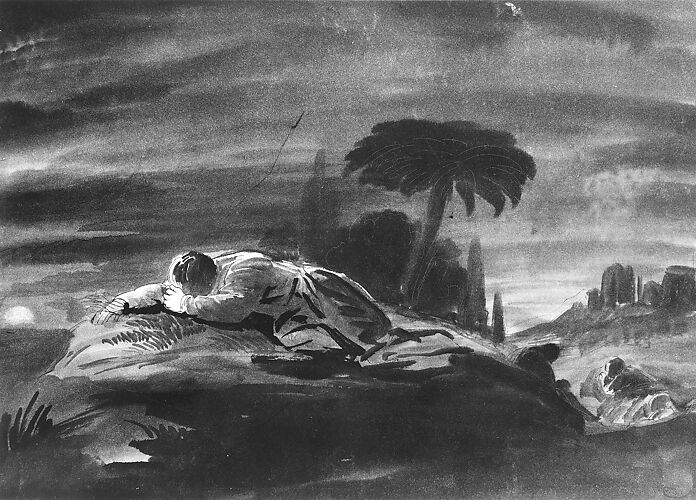"My soul is deeply grieved, to the point of death" (Matthew 26:38).
For our Lord, what had previously been a palace of refreshment, became a place of unspeakable horror. The paradox between what took place in a garden like Gethsemane and what took place in The Garden of Gethsemane are obvious. In Eden, the first Adam was crushed for his own wrongdoing; in Gethsemane, the last Adam was “crushed [bruised, KJV]” for ours (Isaiah 53:5, NASB).
Just as olives were pressed 3 times to exhaustion, our Lord was pressed to utter exhaustion (Matt. 26:36-44), praying to His Father 3 times. Coffman quoted Plummer, who, in reference to Christ’s second prayer as recorded in Matthew 26:42, noted:
Why did he repeat his prayer in Gethsemane? We may reverently suppose that he himself knew that the first utterance of the prayer had not been complete in its success. His human will was not yet in absolute unison with the will of his Father; and, in this way, we may trace progress between the first prayer and the second. In both cases, the prayer is made conditional; but in the first the condition is positive; in the second it is negative. “If it be possible” has become “If it be not possible”; and there is no longer any petition that the cup be removed. We may believe that in the third prayer, even if the same words were used, the “if” has become equivalent to “since”: “since this cup cannot pass from me, thy will be done.
In Gethsemane, our Lord was “loaded into the machine,” as it were, the levers were brought down, triple-pressed, until the final drops were extracted. Matthew notes that Jesus “began to be sorrowful and sore troubled” (26:37). Jesus confessed – out loud to Peter, James, and John – that His soul was “exceeding sorrowful, even unto death” (v.38).
Matthew’s word “sorrowful” comes from the Greek verb lupeo, and refers to intense, emotional pain, and is used in the LXX (Gen. 3:16) of the pain of childbirth. The word “sore troubled” comes from the verb ademoneo, and means to be distressed, troubled, filled with anxiety, to feel heavy.
Even the best translations seem to underserve the intensity of this moment. In his paraphrase, Phillips wrote, “he…began to be in terrible distress and misery,” while The Message says, “he plunged into agonizing sorrow. Then he said, ‘This sorrow is crushing my life out.’” The CEV says, "I feel as if I am dying." Say what you will about paraphrases – translations they are not – but here, they have captured the sense.
Jesus’ suffering was so intense He felt He was going to drop dead, and He may have been right. According to what Dr. Luke relates to us, His body began to manifest the symptoms of impending death. Jesus’ sweat became infused with blood – a rare malady induced by extreme stress. So incredible was the pressure that an angel was dispatched to “strengthen” Him (Luke 22:43). It has been suggested that were it not for this supernatural intervention our Lord would have died in the Garden. Perhaps so.
Greater than death, and more ominous than the specter of the cross (not that these aren’t formidable enough), was the horror that His mere mortal frame might not hold up under the strain. Jesus’ public ministry had already been a continual, crushing stress. “Consider him who endured from sinners such hostility against himself” (Heb. 12:3, ESV). Indeed! Think about it!
He suffered, face down, aptly described in 1854 by Love Humphreys Jameson as a “Night With Ebon Pinion.” Indeed, this was a vale shrouded beneath blackened wing if ever there was one, as
Christ, the Man of sorrows,
with tears, and sweat as blood,
prostrate in the Garden,
raised His voice to God.
Consider the possibility that our Lord feared not making it to His crucifixion as much, or more so, than He feared the crucifixion itself.
Coffman added, “Only his great eternal love for man brought him through the depth of humiliation and temptation that swept over him in that chilling scene in Gethsemane.”
We hasten to add that it was “his great eternal love for man” coupled with His great, eternal love for the Father, and the Father’s great, eternal love for Him, that “brought him through…that chilling scene.”
- Your Kingdom Come - 2025-10-04
- Sometimes, teacher. Always, student (an anecdote). - 2025-08-30
- Fill in the blanks - 2025-07-12
